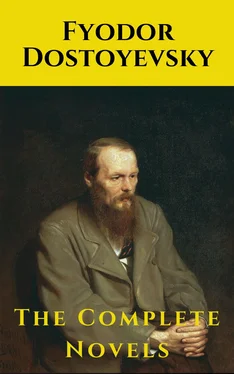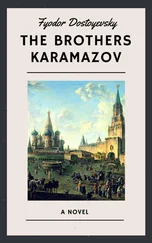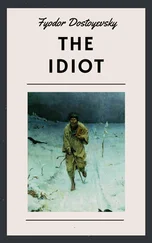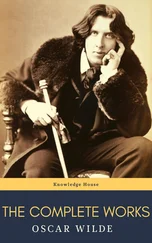Knowledge house - Fyodor Dostoyevsky - The Complete Novels
Здесь есть возможность читать онлайн «Knowledge house - Fyodor Dostoyevsky - The Complete Novels» — ознакомительный отрывок электронной книги совершенно бесплатно, а после прочтения отрывка купить полную версию. В некоторых случаях можно слушать аудио, скачать через торрент в формате fb2 и присутствует краткое содержание. Жанр: unrecognised, на английском языке. Описание произведения, (предисловие) а так же отзывы посетителей доступны на портале библиотеки ЛибКат.
- Название:Fyodor Dostoyevsky: The Complete Novels
- Автор:
- Жанр:
- Год:неизвестен
- ISBN:нет данных
- Рейтинг книги:4 / 5. Голосов: 1
-
Избранное:Добавить в избранное
- Отзывы:
-
Ваша оценка:
- 80
- 1
- 2
- 3
- 4
- 5
Fyodor Dostoyevsky: The Complete Novels: краткое содержание, описание и аннотация
Предлагаем к чтению аннотацию, описание, краткое содержание или предисловие (зависит от того, что написал сам автор книги «Fyodor Dostoyevsky: The Complete Novels»). Если вы не нашли необходимую информацию о книге — напишите в комментариях, мы постараемся отыскать её.
Poor Folk
The Double
Notes From The Underground
Crime and Punishment
The Gambler
The Idiot
The Possessed (The Devils)
A Raw Youth
The Dream of a Ridiculous Man
The Brothers Karamazov
Fyodor Dostoyevsky: The Complete Novels — читать онлайн ознакомительный отрывок
Ниже представлен текст книги, разбитый по страницам. Система сохранения места последней прочитанной страницы, позволяет с удобством читать онлайн бесплатно книгу «Fyodor Dostoyevsky: The Complete Novels», без необходимости каждый раз заново искать на чём Вы остановились. Поставьте закладку, и сможете в любой момент перейти на страницу, на которой закончили чтение.
Интервал:
Закладка:
So I dreamed as I sat at home that evening, almost dead with the pain in my soul. Never had I endured such suffering and remorse, yet could there have been the faintest doubt when I ran out from my lodging that I should turn back half-way? I never met Liza again and I have heard nothing of her. I will add, too, that I remained for a long time afterwards pleased with the phrase about the benefit from resentment and hatred in spite of the fact that I almost fell ill from misery.
… . .
Even now, so many years later, all this is somehow a very evil memory. I have many evil memories now, but … hadn't I better end my "Notes" here? I believe I made a mistake in beginning to write them, anyway I have felt ashamed all the time I've been writing this story; so it's hardly literature so much as a corrective punishment. Why, to tell long stories, showing how I have spoiled my life through morally rotting in my corner, through lack of fitting environment, through divorce from real life, and rankling spite in my underground world, would certainly not be interesting; a novel needs a hero, and all the traits for an anti-hero are EXPRESSLY gathered together here, and what matters most, it all produces an unpleasant impression, for we are all divorced from life, we are all cripples, every one of us, more or less. We are so divorced from it that we feel at once a sort of loathing for real life, and so cannot bear to be reminded of it. Why, we have come almost to looking upon real life as an effort, almost as hard work, and we are all privately agreed that it is better in books. And why do we fuss and fume sometimes? Why are we perverse and ask for something else? We don't know what ourselves. It would be the worse for us if our petulant prayers were answered. Come, try, give any one of us, for instance, a little more independence, untie our hands, widen the spheres of our activity, relax the control and we … yes, I assure you … we should be begging to be under control again at once. I know that you will very likely be angry with me for that, and will begin shouting and stamping. Speak for yourself, you will say, and for your miseries in your underground holes, and don't dare to say all of us— excuse me, gentlemen, I am not justifying myself with that "all of us." As for what concerns me in particular I have only in my life carried to an extreme what you have not dared to carry halfway, and what's more, you have taken your cowardice for good sense, and have found comfort in deceiving yourselves. So that perhaps, after all, there is more life in me than in you. Look into it more carefully! Why, we don't even know what living means now, what it is, and what it is called? Leave us alone without books and we shall be lost and in confusion at once. We shall not know what to join on to, what to cling to, what to love and what to hate, what to respect and what to despise. We are oppressed at being men—men with a real individual body and blood, we are ashamed of it, we think it a disgrace and try to contrive to be some sort of impossible generalised man. We are stillborn, and for generations past have been begotten, not by living fathers, and that suits us better and better. We are developing a taste for it. Soon we shall contrive to be born somehow from an idea. But enough; I don't want to write more from "Underground."
[The notes of this paradoxalist do not end here, however. He could not refrain from going on with them, but it seems to us that we may stop here.]
Table of Contents
Crime and Punishment
Fyodor Mikhailovich Dostoyevsky
Translator's Preface
Part 1
Chapter 1
Chapter 2
Chapter 3
Chapter 4
Chapter 5
Chapter 6
Chapter 7
Part 2
Chapter 1
Chapter 2
Chapter 3
Chapter 4
Chapter 5
Chapter 6
Chapter 7
Part 3
Chapter 1
Chapter 2
Chapter 3
Chapter 4
Chapter 5
Chapter 6
Part 4
Chapter 1
Chapter 2
Chapter 3
Chapter 4
Chapter 5
Chapter 6
Part 5
Chapter 1
Chapter 2
Chapter 3
Chapter 4
Chapter 5
Part 6
Chapter 1
Chapter 2
Chapter 3
Chapter 4
Chapter 5
Chapter 6
Chapter 7
Chapter 8
Part 7 Epilogue
Chapter 1
Chapter 2
Crime and Punishment
Fyodor Mikhailovich Dostoyevsky
(Translator: Constance Garnett)
Published:1866 Categorie(s):Fiction
Translator's Preface
A few words about Dostoevsky himself may help the English reader to understand his work.
Dostoevsky was the son of a doctor. His parents were very hard- working and deeply religious people, but so poor that they lived with their five children in only two rooms. The father and mother spent their evenings in reading aloud to their children, generally from books of a serious character.
Though always sickly and delicate Dostoevsky came out third in the final examination of the Petersburg school of Engineering. There he had already begun his first work, Poor Folk.
This story was published by the poet Nekrassov in his review and was received with acclamations. The shy, unknown youth found himself instantly something of a celebrity. A brilliant and successful career seemed to open before him, but those hopes were soon dashed. In 1849 he was arrested.
Though neither by temperament nor conviction a revolutionist, Dostoevsky was one of a little group of young men who met together to read Fourier and Proudhon. He was accused of "taking part in conversations against the censorship, of reading a letter from Byelinsky to Gogol, and of knowing of the intention to set up a printing press." Under Nicholas I. (that "stern and just man," as Maurice Baring calls him) this was enough, and he was condemned to death. After eight months' imprisonment he was with twenty-one others taken out to the Semyonovsky Square to be shot. Writing to his brother Mihail, Dostoevsky says: "They snapped words over our heads, and they made us put on the white shirts worn by persons condemned to death. Thereupon we were bound in threes to stakes, to suffer execution. Being the third in the row, I concluded I had only a few minutes of life before me. I thought of you and your dear ones and I contrived to kiss Plestcheiev and Dourov, who were next to me, and to bid them farewell. Suddenly the troops beat a tattoo, we were unbound, brought back upon the scaffold, and informed that his Majesty had spared us our lives." The sentence was commuted to hard labour.
One of the prisoners, Grigoryev, went mad as soon as he was untied, and never regained his sanity.
The intense suffering of this experience left a lasting stamp on Dostoevsky's mind. Though his religious temper led him in the end to accept every suffering with resignation and to regard it as a blessing in his own case, he constantly recurs to the subject in his writings. He describes the awful agony of the condemned man and insists on the cruelty of inflicting such torture. Then followed four years of penal servitude, spent in the company of common criminals in Siberia, where he began the Dead House, and some years of service in a disciplinary battalion.
He had shown signs of some obscure nervous disease before his arrest and this now developed into violent attacks of epilepsy, from which he suffered for the rest of his life. The fits occurred three or four times a year and were more frequent in periods of great strain. In 1859 he was allowed to return to Russia. He started a journal— "Vremya," which was forbidden by the Censorship through a misunderstanding. In 1864 he lost his first wife and his brother Mihail. He was in terrible poverty, yet he took upon himself the payment of his brother's debts. He started another journal—"The Epoch," which within a few months was also prohibited. He was weighed down by debt, his brother's family was dependent on him, he was forced to write at heart-breaking speed, and is said never to have corrected his work. The later years of his life were much softened by the tenderness and devotion of his second wife.
Читать дальшеИнтервал:
Закладка:
Похожие книги на «Fyodor Dostoyevsky: The Complete Novels»
Представляем Вашему вниманию похожие книги на «Fyodor Dostoyevsky: The Complete Novels» списком для выбора. Мы отобрали схожую по названию и смыслу литературу в надежде предоставить читателям больше вариантов отыскать новые, интересные, ещё непрочитанные произведения.
Обсуждение, отзывы о книге «Fyodor Dostoyevsky: The Complete Novels» и просто собственные мнения читателей. Оставьте ваши комментарии, напишите, что Вы думаете о произведении, его смысле или главных героях. Укажите что конкретно понравилось, а что нет, и почему Вы так считаете.












